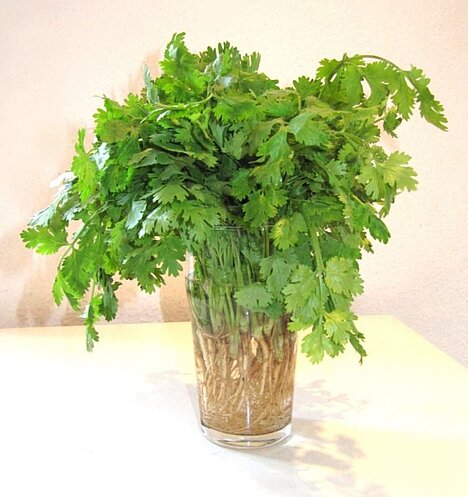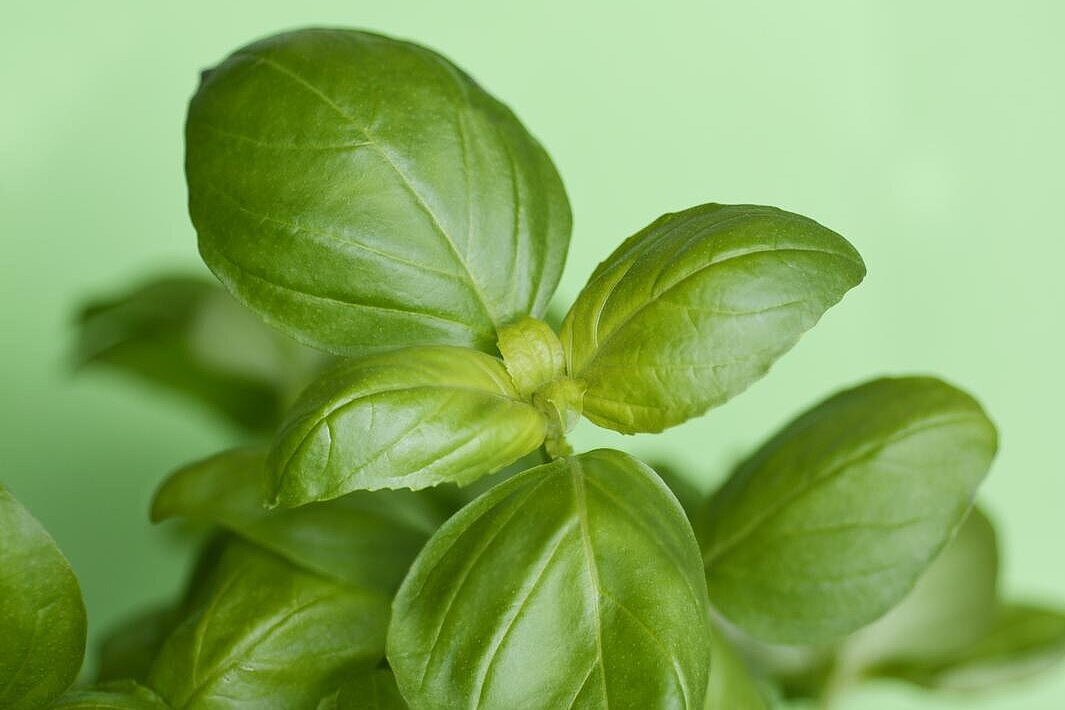Coriander

What is coriander?
Coriander, also known as Chinese parsley or coriander leaves, is a plant that is used as a spice in many parts of the world. The plant belongs to the umbellifer family and has delicate, green leaves and small, white flowers. Both the leaves and the seeds of the coriander plant are used in cooking.
Benefits of coriander for dogs
Digestive: Coriander can help to relieve digestive problems such as bloating, constipation and diarrhea in dogs. The essential oils in coriander have a calming effect on the gastrointestinal tract and can help to improve digestion.
Anti-inflammatory: Coriander contains anti-inflammatory compounds that can help dogs with inflammation in the body, such as arthritis. Taking coriander can relieve pain and inflammation.
Antioxidants: Coriander is an excellent source of antioxidants, which can help dogs protect themselves from free radicals and damage caused by pollution. Antioxidants also help to boost the immune system and slow down ageing.
Disadvantages of coriander for dogs
Allergies: Although cilantro is safe for most dogs, some dogs may be allergic to the plant. If your dog has symptoms such as itching, skin rashes or breathing difficulties after eating coriander, you should stop feeding it.
Intolerances: Some dogs may be sensitive to certain foods and experience digestive problems or diarrhea. If your dog is sensitive to new foods, you should introduce him to coriander slowly to make sure he tolerates it well.
Overall, coriander can be beneficial for dogs, especially for digestive problems, inflammation and as a source of antioxidants. However, you should make sure that your dog does not have any allergic reactions or intolerances to coriander before giving him the ingredient.
If you notice any signs of hypersensitivity or poisoning in your dog, you should see your vet immediately. We are not a substitute for a vet, but we try to be as accurate as possible. Every dog reacts differently and we recommend you get a second opinion or consult your vet if in doubt.
Stay healthy and take good care of your four-legged friend!😊
Similar to Coriander
Parsley is a plant from the umbellifer family, which also includes carrots, celery and fennel. It has green, curly or smooth leaves with an aromatic scent. Parsley originates from the Mediterranean...
Dill is a spice plant from the Apiaceae family. It is known for its fine, fern-like leaves and fine seeds, which are often used in cooking. Dill originates from southwest Asia, but is now cultivated...
Peppermint is a perennial plant from the labiate family. It has green leaves with serrated edges and purple flowers. It grows in temperate climates and can reach a height of up to one meter....
Basil is a green herb that belongs to the labiate family. There are many different varieties of basil, including the classic Genovese basil and the sweet basil. This herbal ingredient has a...



